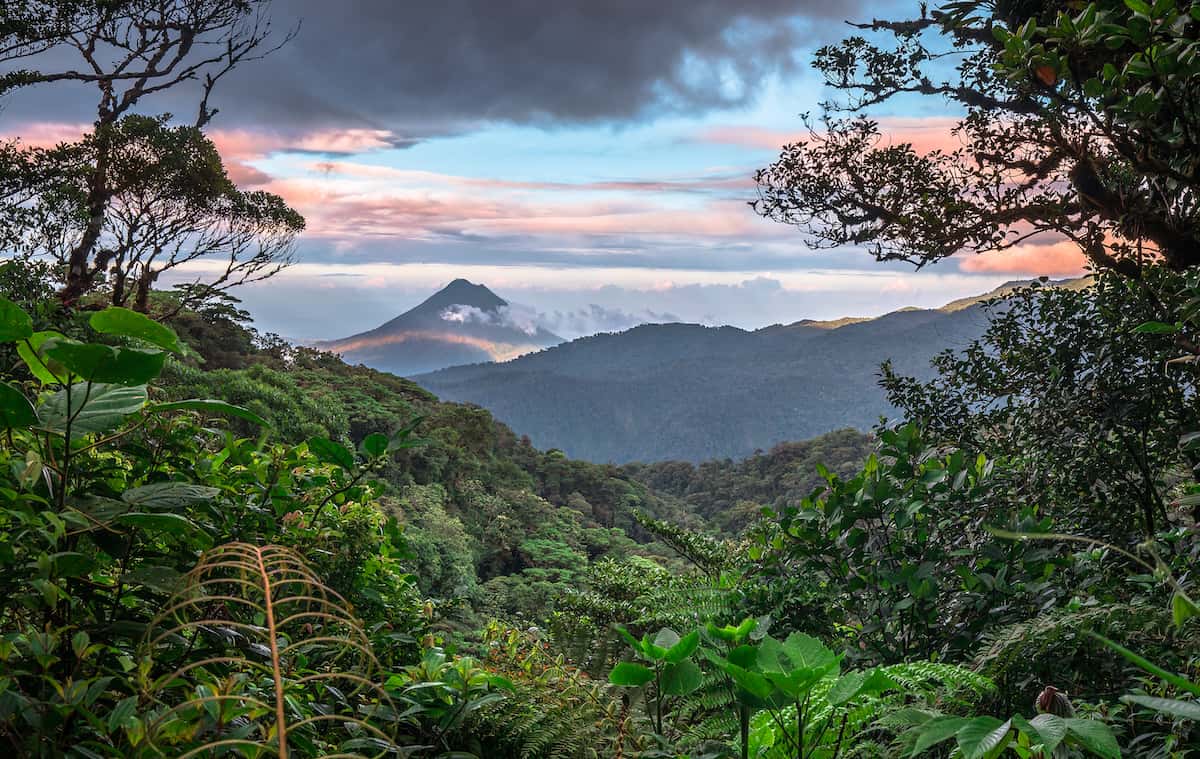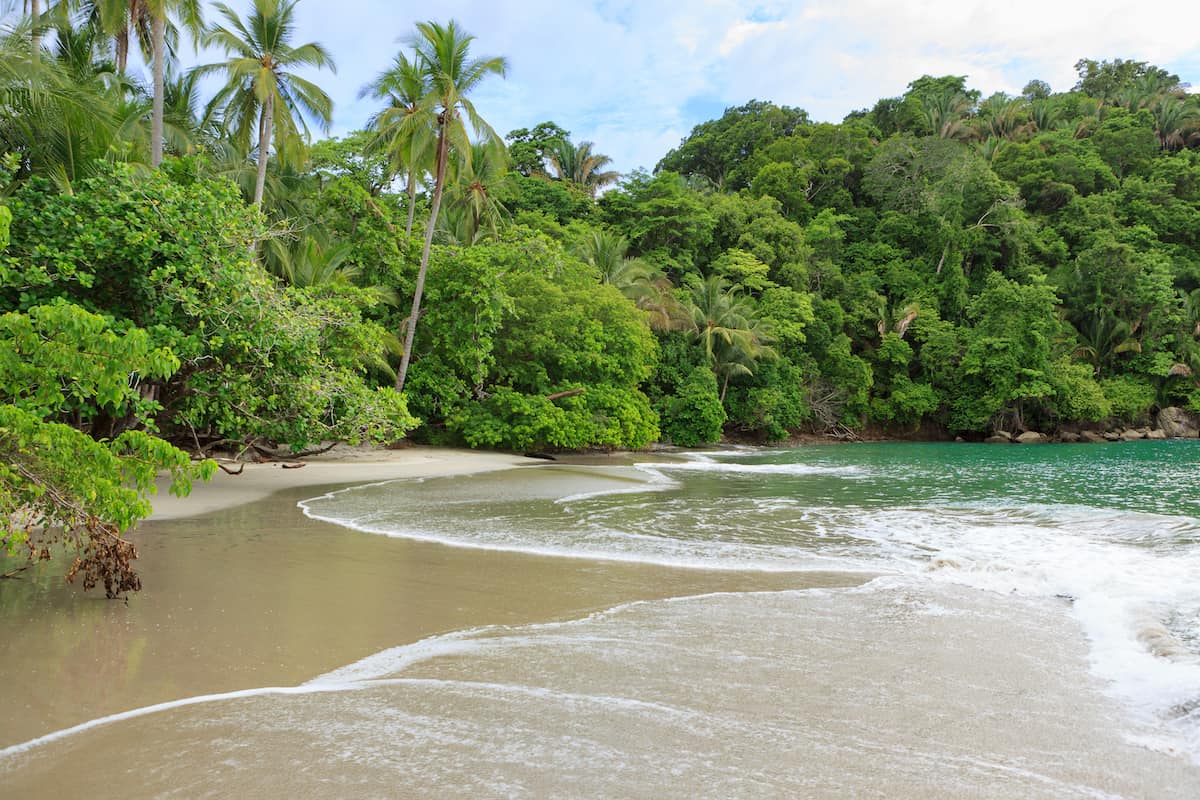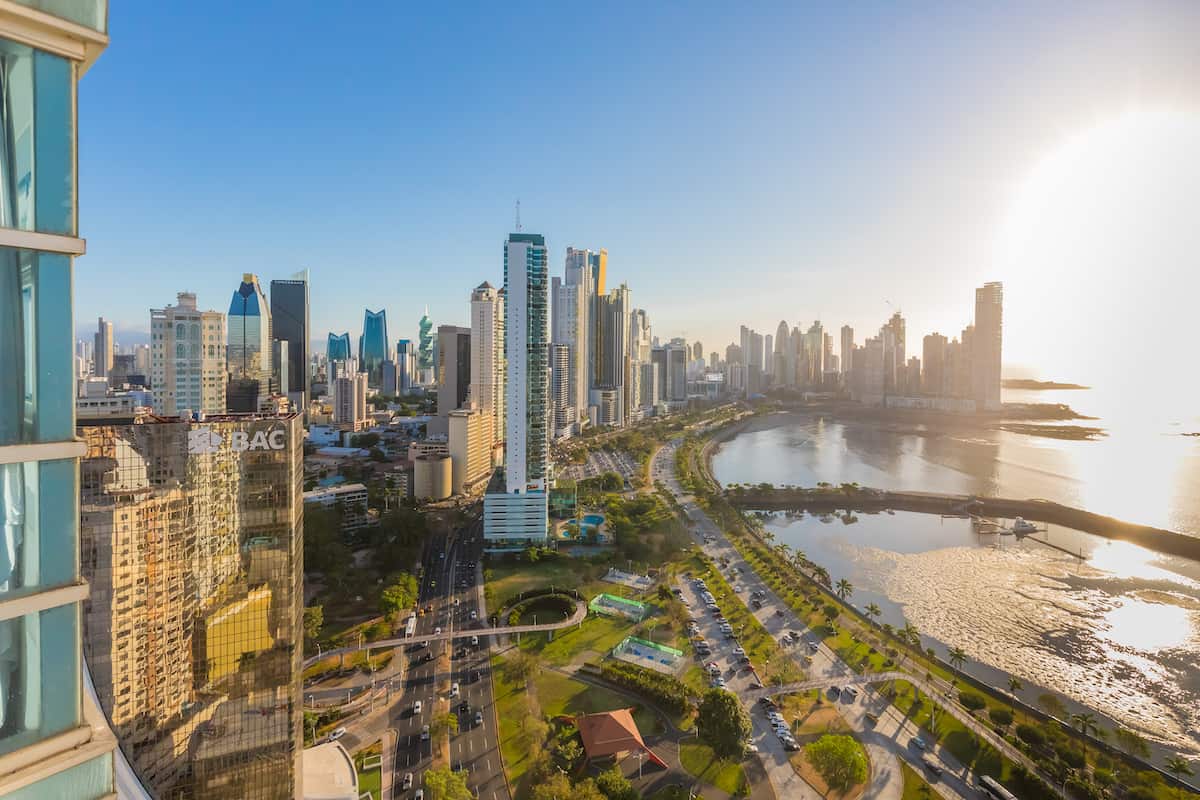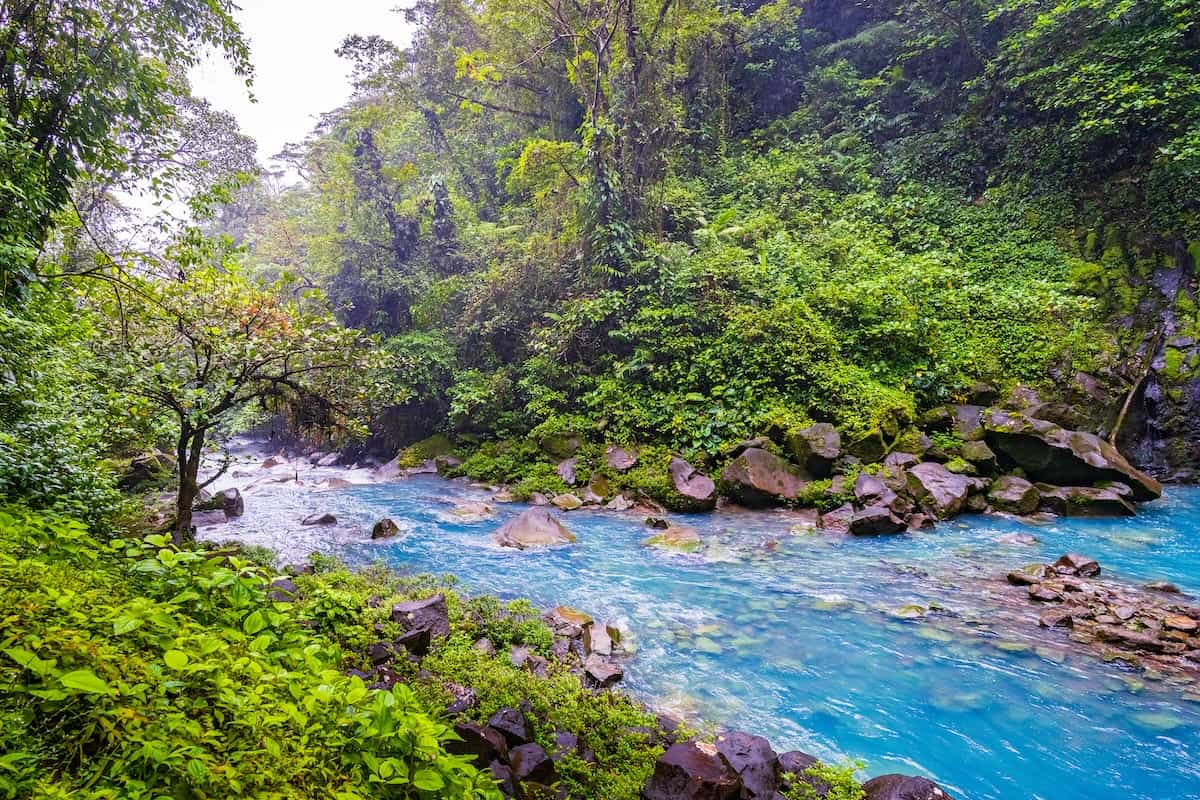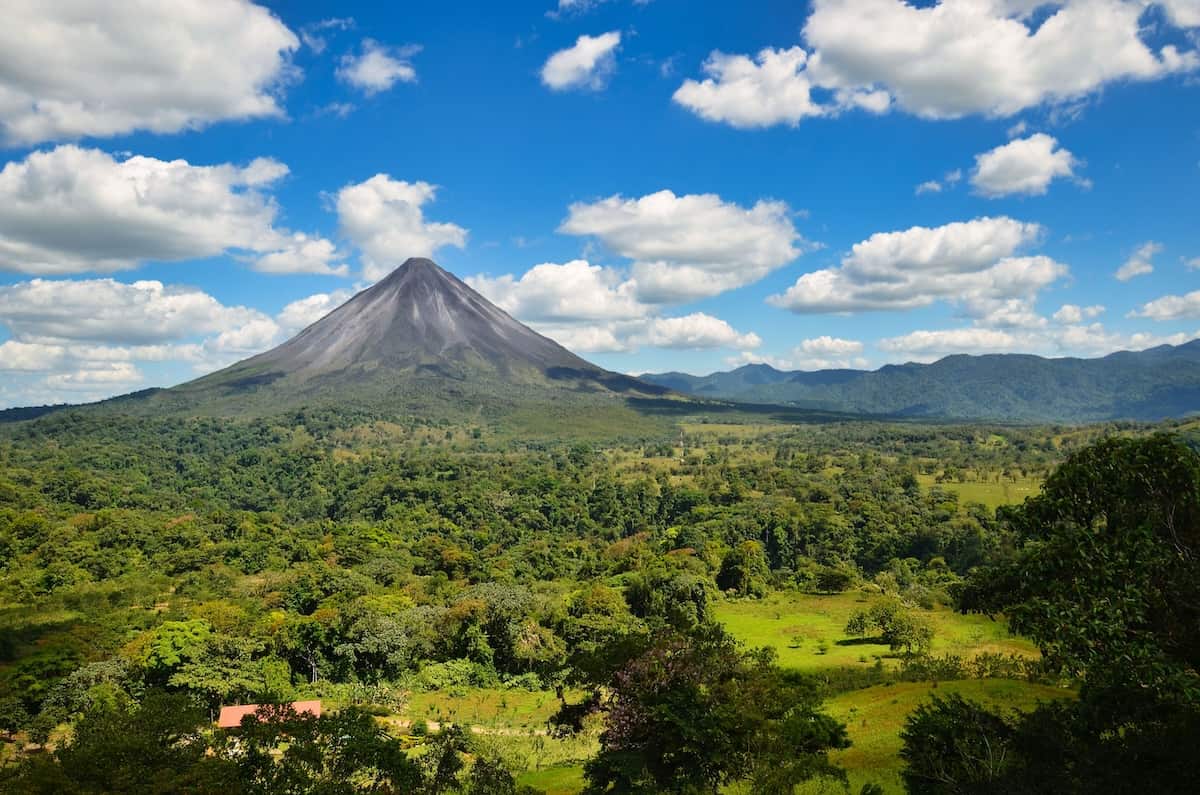Is Panama A Good Place To Live?
Located in Central America, Panama is known to be the bridge between North and South America, thanks to its strategic position. It has been slowly gaining popularity and attracting many tourists worldwide for its dense jungles and beautiful beaches.
Still, is Panama a good place to live in? Panama has now introduced its friendly nations visa program, which assists foreigners in gaining residency much cheaper and shorter time than other countries.
This country boasts a stunning natural environment. Not only does it have great surfing beaches, but it also includes lush rainforests and impressive mountains.
Nature lovers and outdoor enthusiasts are drawn to the country’s biodiversity and scenic beauty. The Panamanian economy has experienced consistent growth, largely thanks to the revenue generated from the Panama Canal.
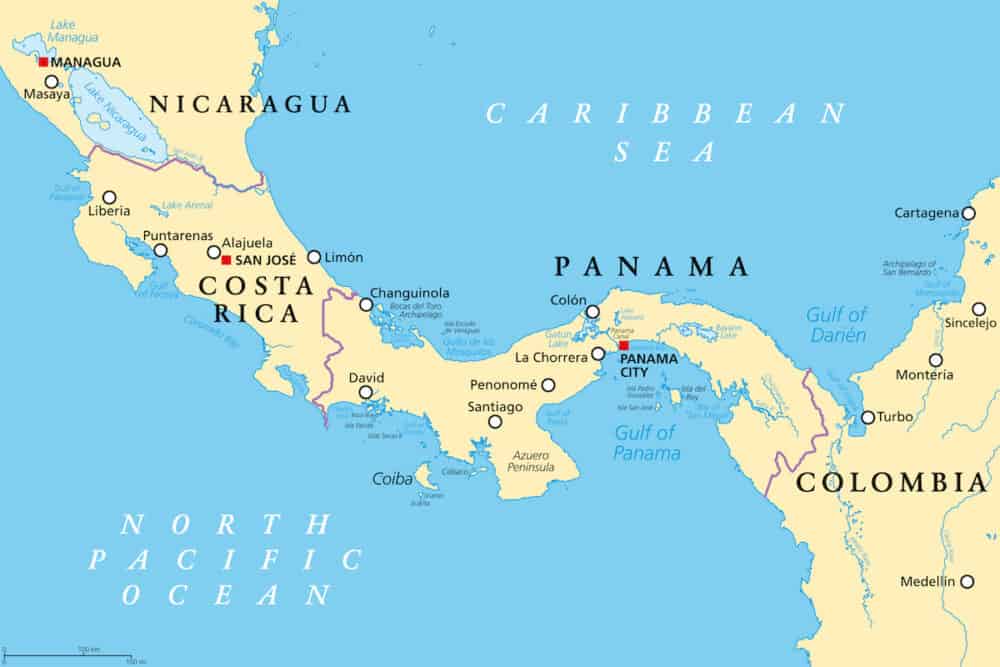
Panama is enticing due its favourable tax policies, including no income tax on foreign-earned income and no capital gains tax.
The country offers various retirement incentives, including special visa programs for retirees, tax benefits, and discounts on multiple services like transportation, health insurance, and entertainment for retirees.
Panama has a well-developed healthcare system with modern facilities and highly trained medical professionals. Medical tourism is also rising in Panama due to its quality healthcare services.
The country has invested in its infrastructure, with a well-connected road network, modern airports, and reliable public transportation in cities like Panama City.
Still, what are the pros and cons of living in Panama? Below is a much more condensed list of why Panama is becoming a hot choice for certain people and why it may not be for others.
Plan your trip
Save on fees abroad with the Wise Card—use it at ATMs, restaurants, and for flights or hotels in over 150 countries. Manage 40+ currencies in real-time with the Wise app.
Need Help Planning?
- Cheap Flights: Find the best deals.
- Accommodation: From hostels to luxury stays.
- Car Rental: Affordable options worldwide.
- Sightseeing Tours: Explore without breaking the bank.
- Travel Adapter: One adapter for all your needs.
- Travel Insurance: Don’t risk it—stay covered.
This post includes affiliate links. Read my full disclosure and content policy.
Cost of living
Life in Panama is relaxed; people enjoy the hot summer sun, run to catch the subsequent sound waves to surf, cruise through the jungle-mountain valleys or shop at local markets. It is a content and tropical lifestyle that many are attracted to.
Your decision to move to Panama should consider your specific circumstances, lifestyle preferences, and financial situation when determining whether living costs are worth it.
When it comes to retiring in Panama, the pros and cons are necessary, but many are choosing to do so for good reason. If you plan to retire, remember where you decide to relocate; staying close to places like the Punta Pacifica Hospital or even immigration is more to your advantage.
Pros:
- Affordable Housing:
Panama offers a range of housing options at various price points. You can find reasonably priced apartments or houses in many areas, making owning or renting a home more affordable than in many Western countries.
- Lower Day-to-Day Expenses:
Everyday expenses like groceries, dining out, and transportation are often more budget-friendly in Panama.
- Tax Benefits:
Panama has favourable tax policies, including no income tax on foreign-earned income and no capital gains tax, resulting in significant savings for retirees and expatriates.
- Retirement Incentives:
Panama has attractive retirement programs, such as the Pensionado Visa, which discounts various services and goods for retirees, including healthcare, entertainment, and transportation.
- Quality Healthcare at a Lower Cost:
Panama provides quality healthcare services, including modern hospitals and clinics, often at a fraction of the cost compared to countries like the United States. Medical procedures and services are generally more affordable.
Cons:
- Higher Costs in Urban Areas:
While overall costs are lower, Panama City, the capital, and other urban centres can be more expensive than rural areas. Housing and entertainment costs can be notably higher in these districts.
- Inflation:
Panama has experienced some inflation in recent years, which can impact the cost of living. Prices for certain goods and services may increase over time.
- Imported Goods:
Imported products and luxury items can be more expensive due to import taxes and shipping costs. They may come at a premium if you have specific preferences for imported goods.
- Limited Access to High-End Services:
While Panama has quality healthcare, education, and other services, some individuals may find that certain specialized or high-end services are limited.
- Exchange Rate Fluctuations:
Panama uses the U.S. dollar as its official currency. Still, exchange rate fluctuations can affect your purchasing power, especially if you have income in another currency.
- Bureaucracy:
Dealing with government paperwork and bureaucracy can be challenging for expatriates, especially regarding visas, permits, and other legal matters.
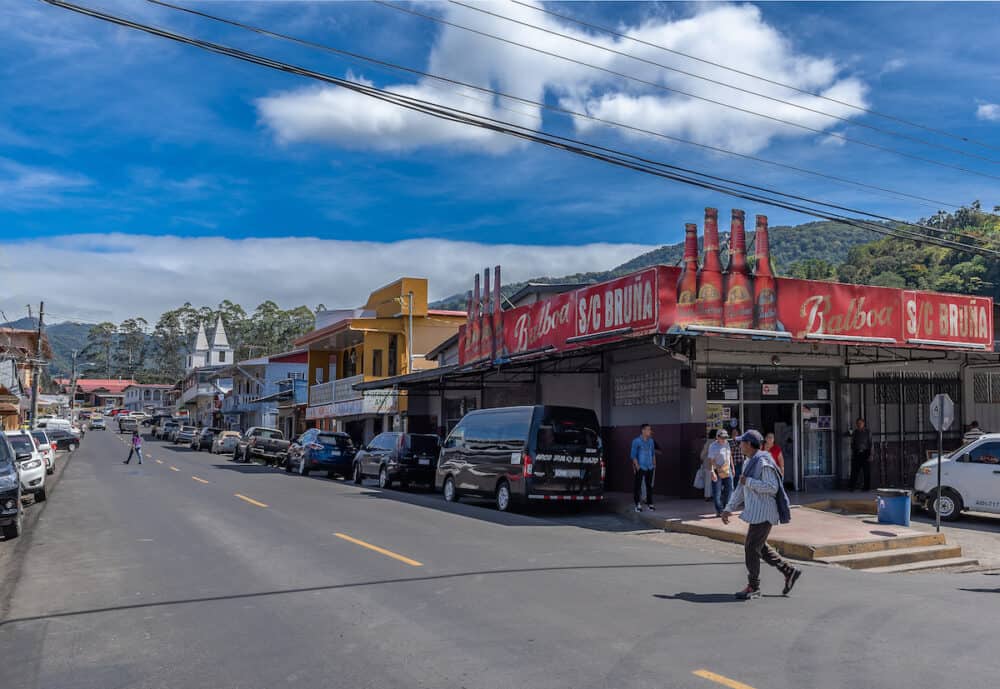
Infrastructure
The infrastructure in Panama is relatively modern and well-developed, particularly in urban areas like Panama City. You can’t quite compare it to your hometown, but generally, you will find things working like your TV, internet, and phone services.
You will also receive good healthcare, available utilities, reputable education facilities and reliable public transport.
The only bad things about living in Panama to be wary of, concerning the infrastructure and internal system, are the unfortunate power and water outages that take place from time to time.
Overall, the country works in good condition, and its standards are slowly rising, which is why so many people are attracted to the thought of moving there.
You will find well-built roads, a solid traffic system and good transport routes. Under the UN’s definition, Panama is a highly developed economy.
Pros:
- Modern Transportation:
Panama has a well-developed transportation network, including modern airports, highways, and ports. The Panama Canal itself is a marvel of engineering, facilitating global trade.
- Connectivity:
The country’s strategic location as a bridge between North and South America makes it a hub for international travel and trade, with numerous flight connections to major cities worldwide.
- Public Transportation:
In cities like Panama City, you’ll find reliable public transportation systems, including buses and a metro system, making it easy to get around without a car.
- Communication:
Panama has a robust telecommunications infrastructure, providing access to high-speed internet and mobile networks.
- Utilities:
Access to utilities like electricity and clean water is generally reliable and widely available throughout the country.
Cons:
- Infrastructure Disparities:
While urban areas like Panama City enjoy modern infrastructure, rural regions may need more access to quality roads, healthcare facilities, and public services.
- Traffic Congestion:
In major urban areas, traffic congestion can be a significant issue, leading to longer commute times and frustration.
- Maintenance Challenges:
Some areas may experience infrastructure maintenance and upkeep challenges, leading to occasional disruptions in services or repairs.
- Weather-Related Risks:
Panama is prone to natural disasters like hurricanes and heavy rainfall, damaging infrastructure and disrupting daily life.
- Bureaucratic Processes:
Dealing with government permits and approvals related to infrastructure projects or property purchases can sometimes take time and effort.
- Environmental Concerns:
Some infrastructure projects, particularly those related to mining or large-scale development, have faced environmental concerns and opposition from local communities.
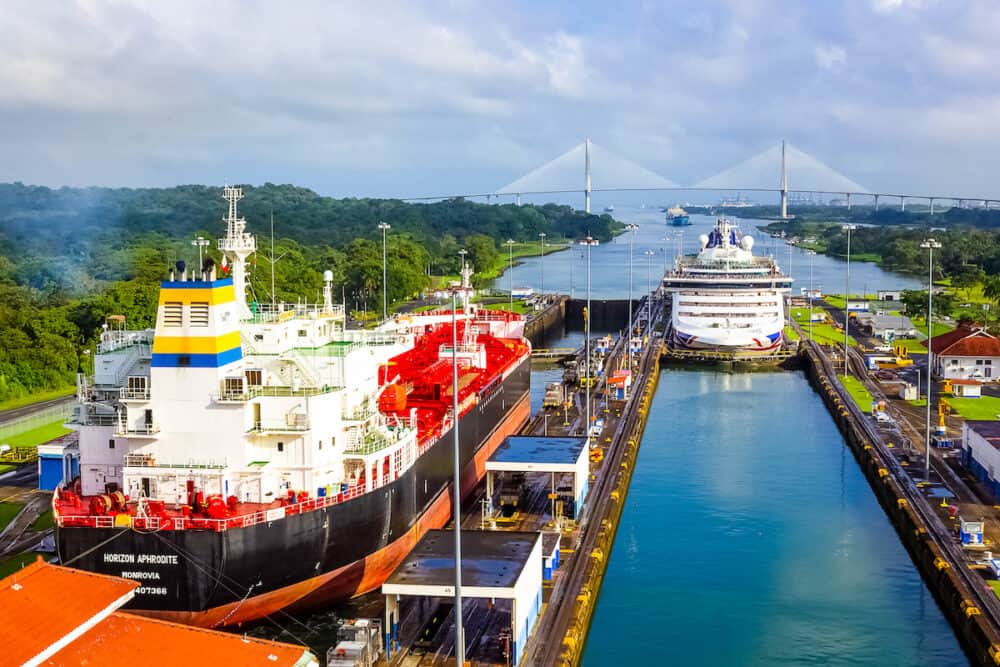
Security & Safety
“Is the security and safety enough to make Panama City a good place to live?”
The answer is yes, although it can vary depending on the region.
Major urban areas generally have a lower violent crime rate than some neighbouring countries in Central America. However, petty theft and pickpocketing can occur, especially in more tourist-orientated areas.
Making a move to live in Panama can be a scary thought. Still, Panama’s stability in terms of politics and social issues contributes to an overall safe environment. More popular areas visited by tourists and expatriates often have increased security measures.
Natural disasters, such as hurricanes, heavy rainfall, and flooding, can pose risks in certain regions, so staying informed about weather conditions and emergency procedures is essential.
Pros:
- Low Violent Crime Rates:
Panama generally has lower violent crime rates than some neighbouring countries in Central America. Violent crimes like homicides are relatively low, particularly in tourist and expatriate areas.
- Tourist and Expat-Friendly:
Many areas frequented by tourists and expatriates, such as Panama City and popular beach destinations, have increased security measures, making them safer and more welcoming for foreigners.
- Stable Political Environment:
Panama has a stable political environment and a history of peaceful transitions of power, reducing the risk of political instability and conflict.
- Strong Police Presence:
Law enforcement agencies in Panama are actively engaged in maintaining public safety and are often visible in urban areas.
Cons:
- Petty Crime:
While violent crime rates are relatively low, petty crimes like theft, pickpocketing, and burglaries can occur, especially in urban areas and tourist spots. Vigilance and precaution are advisable.
- Rural and Remote Areas:
In rural or less developed regions, security services may be limited, and access to healthcare can be challenging in emergencies.
- Traffic Accidents:
Traffic accidents can be a significant safety concern in Panama, especially in urban areas with congested traffic and aggressive driving habits.
- Natural Disasters:
Panama is susceptible to natural disasters such as earthquakes, floods, and hurricanes. Being prepared and aware of emergency procedures is essential.
- Scams and Fraud:
As in any country, there is a risk of scams and fraud, especially targeting expatriates or tourists. Being cautious and informed can help mitigate this risk.
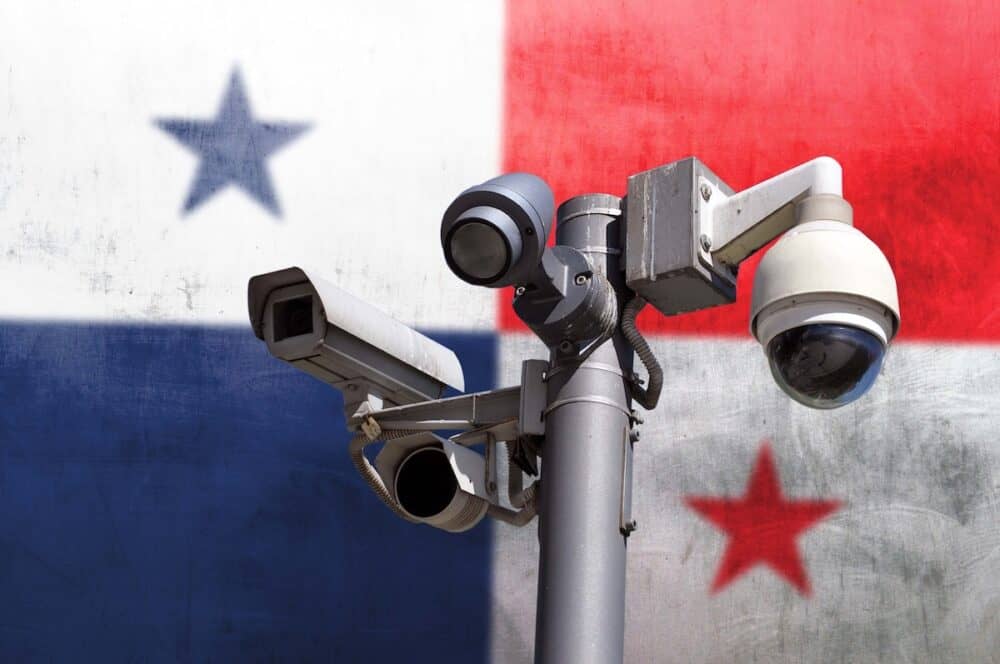
Accommodation
The choices are vast! Depending on where you decide to stay in Panama, prepare for various options from urban apartments, houses, beachfront properties, mountain retreats, gated communities, rural properties, rental apartments, hotels and resorts.
Many expats in Panama travel far and wide for the dream of living in the perfect beachfront villa, which is available throughout the country at affordable rates!
Pros:
- Variety of Options:
Panama offers various accommodation options to suit different budgets and lifestyles. You can find everything from luxury condos and beachfront homes to affordable apartments.
- Affordability:
In general, Panama’s accommodation cost is relatively lower compared to many Western countries, particularly in rural areas or less developed regions.
- Beautiful Locations:
Panama boasts stunning natural landscapes and many accommodations offer picturesque views of the ocean, rainforests, or mountains, providing a unique living experience.
- Modern Amenities:
Urban centres like Panama City have modern, well-equipped accommodations with amenities like swimming pools, gyms, and security features.
- Retirement Incentives:
Panama has special visa programs and incentives for retirees, including discounts on accommodation, making it more affordable for retirees.
Cons:
- Regional Variations:
The quality, availability, and accommodation costs vary significantly depending on the region. Urban areas may offer more amenities but higher prices, while rural areas may have limited options.
- Rent Fluctuations:
Rental prices in Panama can fluctuate, and it’s not uncommon for landlords to raise rent without much notice. Negotiating rental contracts is essential to secure a reasonable rate.
- Documentation and Contracts:
Rental contracts may be written in Spanish, and it’s crucial to understand the terms and conditions before signing. Legal assistance may be necessary for non-Spanish speakers.
- Maintenance and Repairs:
Depending on the property and landlord, maintenance and repairs may not be as prompt as you’re used to in more developed countries.
- Security Deposits:
Landlords often require significant security deposits, which can tie up a considerable amount of money until the end of the lease.
- Ownership Restrictions:
There may be restrictions on purchasing property near coastlines or in certain areas for foreigners. Understanding property laws and regulations is crucial if you plan to buy.
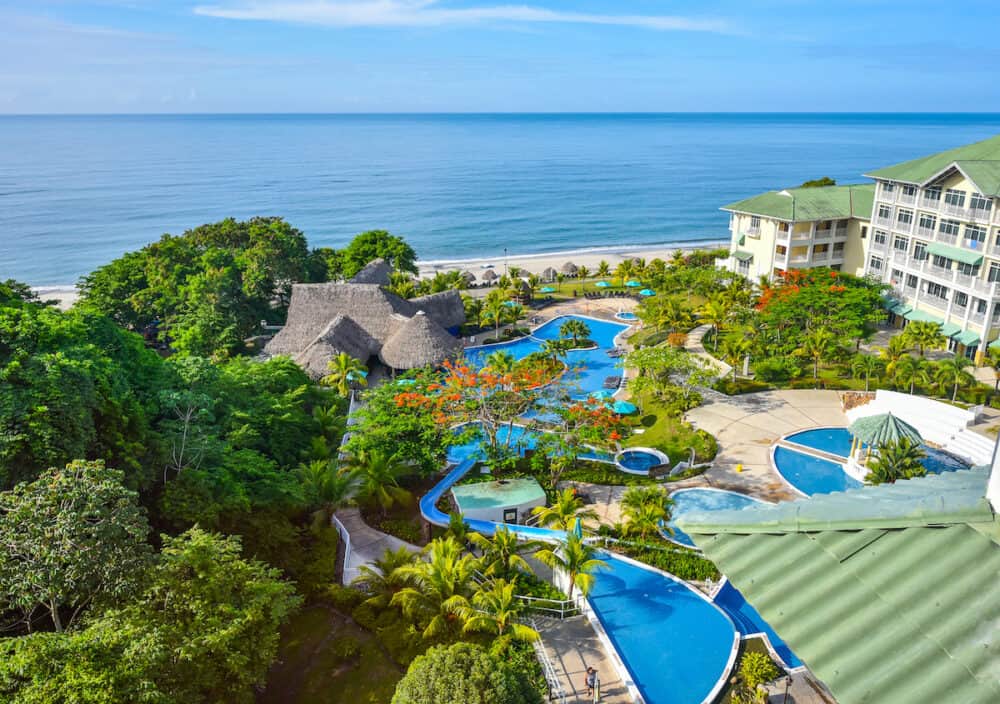
Transport
Living in Panama does require transport, depending on the place you’ve chosen. In urban areas, public transportation options are readily available and can be sufficient for daily commuting.
However, if you plan to live in more remote or rural areas, owning a car or relying on domestic flights and boats may be necessary for mobility.
Specific taxis, private buses and trains are currently being set up to assist those in more rural locations!
Pros:
- Modern Infrastructure:
Significant cities like Panama City have modern roadways, bridges, and highways, making urban transportation efficient and convenient.
- Well-Connected:
Panama’s strategic location as a transportation hub between North and South America means it has excellent connectivity, including international airports and a major international shipping route via the Panama Canal.
- Public Transportation:
In urban areas like Panama City, you’ll find a well-developed public transportation system, including buses and a metro system, which can be cost-effective and reduce the need for a car.
- Affordable Fuel:
Gasoline prices are relatively low in Panama, making driving more affordable if you choose to own a car.
- Taxis and Ride-Sharing:
Taxis are widely available in cities, and ride-sharing services like Uber are also operational, providing convenient and safe transportation options.
Cons:
- Traffic Congestion:
Major urban centres like Panama City can experience significant traffic congestion, leading to longer commute times and frustration.
- Maintenance Issues:
In some areas, roads and infrastructure maintenance may meet different standards than in more developed countries, leading to occasional disruptions and delays.
- Limited Public Transportation in Rural Areas:
While urban areas have robust public transportation, rural and remote regions may have limited options, making it challenging to access certain areas without a car.
- Aggressive Driving Habits:
Driving in Panama can be intimidating for newcomers, as local drivers are known for aggressive habits, making road safety a concern.
- Weather-Related Risks:
Heavy rainfall can lead to flooding and landslides during the rainy season, affecting road conditions and transportation.
- Lack of Pedestrian Infrastructure:
In some areas, pedestrian infrastructure like sidewalks and crosswalks may be lacking, making walking less safe and convenient.
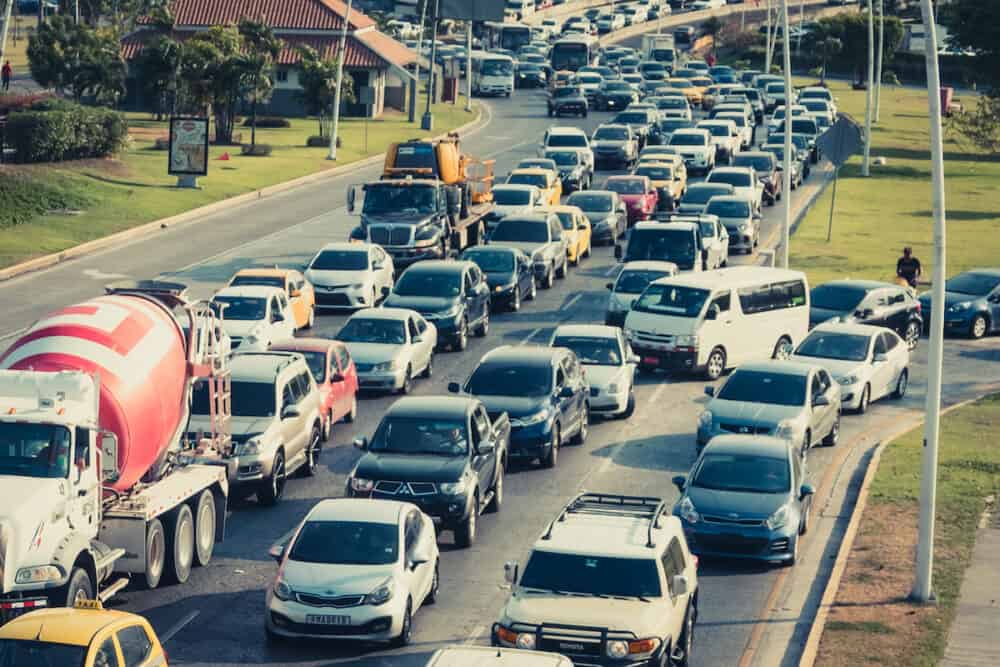
Activities
Choosing the Panama lifestyle and the activities this country provides can significantly influence your decision to move there, as they play a significant role in your quality of life and daily experiences.
Outdoor activities include Pacific and Caribbean beaches that offer swimming, snorkelling, sunbathing, diving and surfing. Explore lush rainforests, national parks, and nature reserves that provide excellent hiking trails, bird-watching and wildlife viewing.
Enjoy water sports like kayaking, paddleboarding, fishing, and sailing. For adrenaline junkies, Panama offers ziplining, white-water rafting, and canopy tours in various locations.
Panama hosts festivals and cultural events annually, celebrating everything from traditional folklore to contemporary music and art.
You can explore historical sites such as the Panama Canal, Casco Viejo (Panama City’s historic district), and indigenous communities with unique traditions.
Savour a mix of Panamanian cuisine, from traditional dishes like sancocho (soup) to international dining options. Explore local markets for fresh produce and street food.
Pros:
- Diverse Natural Beauty:
Panama boasts a stunning natural environment, including rainforests, pristine beaches, mountains, and islands. This provides ample opportunities for outdoor activities like hiking, bird-watching, surfing, and snorkelling.
- Adventure Sports:
Panama is known for its adventure sports, such as ziplining, white-water rafting, and jungle tours, offering thrilling experiences for adventure enthusiasts.
- Cultural Richness:
Panama’s diverse population contributes to a rich cultural scene with festivals, music, dance, and culinary experiences. You can explore the unique traditions of indigenous communities and Afro-Panamanian cultures.
- Historical Sites:
The country has historical sites, including the Panama Canal and the charming colonial town of Casco Viejo. These provide insight into its history and offer cultural and educational experiences.
- Water Activities:
Panama’s extensive coastline provides opportunities for water activities like fishing, sailing, and kayaking. You can explore remote islands and coral reefs.
- Nightlife:
Significant cities like Panama City offer vibrant nightlife with clubs, bars, and restaurants, making it an excellent destination for socializing and entertainment.
Cons:
- Seasonal Weather Challenges:
Panama’s weather can be hot and humid, particularly during the rainy season, which may sometimes limit outdoor activities.
- Limited Entertainment Options in Rural Areas:
Rural or less developed regions may have fewer entertainment and recreational options, and cultural activities may be less accessible.
- Language Barrier:
If you speak Spanish, you may avoid difficulties in fully engaging with local cultural activities. You may need more access to information about events and traditions.
- Costs of Activities:
While many activities are affordable, some adventure sports or high-end experiences can be relatively expensive, impacting your budget.
- Traffic Congestion:
In major urban areas, traffic congestion can affect your ability to enjoy activities and entertainment, especially during rush hours.
- Limited Arts and Theater Scene:
Panama’s arts and theatre scene may be less developed than more significant cultural hubs, which could affect your access to these types of entertainment.
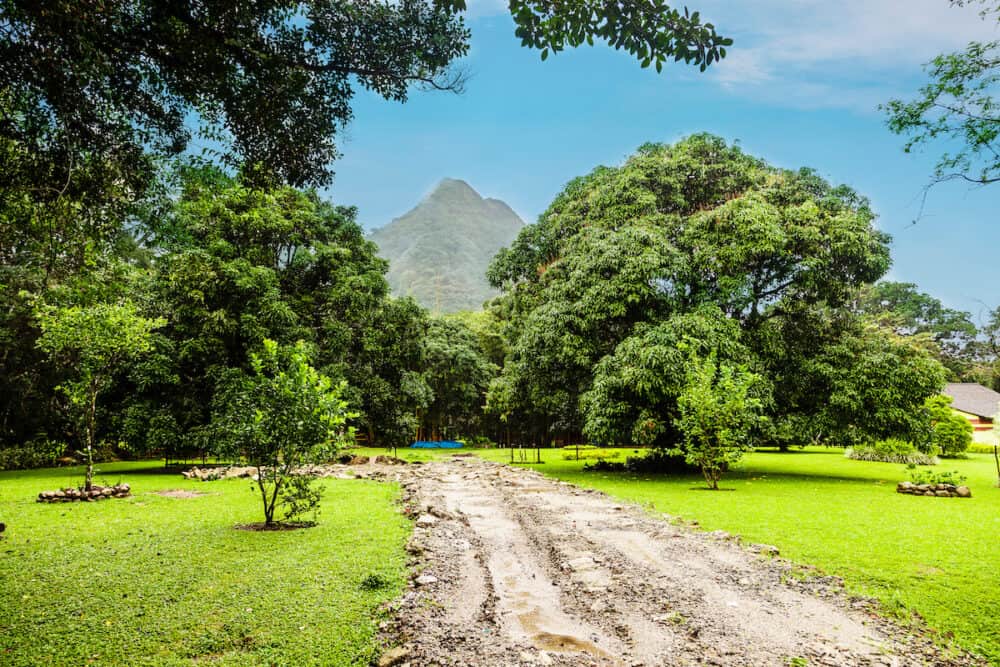
The Weather
When it comes to living in Panama, the pros and cons are essential. The weather can be a big decision-maker since the rainy season is not a loved time of the year for both locals and expats.
Panama has a tropical climate with distinct wet and dry seasons. The dry season lasts from December to April and the wet season runs from May to November.
If you enjoy a consistently warm and tropical climate, Panama’s weather can positively affect your decision.
Pros:
- Warm and Tropical Climate:
Panama generally enjoys a warm, tropical climate year-round, which is appealing for those who prefer consistently mild to hot temperatures.
- Lack of Extreme Seasons:
Panama doesn’t experience extreme cold or harsh winter conditions, making it an ideal destination for people who dislike cold weather.
- Beach and Water Activities:
The warm climate is perfect for enjoying the country’s beautiful beaches, water sports, and outdoor activities all year.
- Abundance of Sunshine:
Panama receives plenty of sunshine throughout the year, which can positively affect your mood and overall well-being.
- Seasonal Variation:
While Panama has a tropical climate, there is some seasonal variation in rainfall and humidity, providing a change in weather patterns without the extremes of other regions.
Cons:
- Humidity:
Panama can be very humid, especially during the rainy season, which may be uncomfortable for some people and can lead to mould and other issues in homes.
- Heavy Rainfall:
The rainy season (typically May to November) brings heavy rainfall and occasional flooding, impacting outdoor activities and transportation.
- Hurricane Risk:
Panama is at risk of hurricanes and tropical storms, particularly in the Caribbean coastal areas, which can lead to severe weather conditions and property damage.
- Insect and Disease Concerns:
The tropical climate can increase mosquito populations, posing health concerns such as the risk of mosquito-borne diseases.
- Lack of Seasonal Variation:
Panama’s consistent tropical climate may not meet your preferences if you prefer distinct seasons with colder weather and changing landscapes.
- Energy Costs:
The need for air conditioning to combat the heat and humidity can result in higher energy bills, impacting your cost of living.
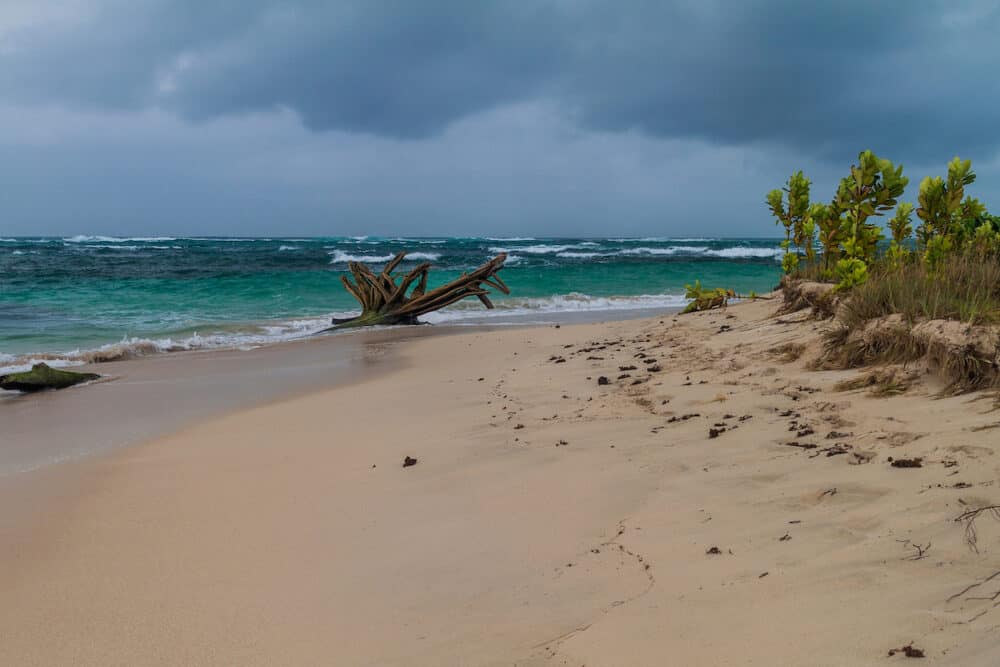
Shopping
“Is it expensive to live in Panama?”
No, the general cost of living is lower than in many other countries; however, it varies depending on where you decide to stay. For instance, shopping will be much more affordable in rural areas compared to built-up urban districts.
Pros:
- Diverse Shopping Options:
Panama offers a wide range of shopping options, from modern malls and boutiques to open-air markets and traditional stores, providing a variety of choices for shoppers.
- Duty-Free Shopping:
The country has a robust duty-free shopping sector, particularly in areas like the Colón Free Trade Zone, where you can find tax-free electronics, fashion, and more.
- Competitive Prices:
Due to its favourable tax policies and strategic location as a trade hub, Panama often offers competitive prices on imported goods, including electronics, clothing, and luxury items.
- Local Art and Crafts:
You can explore Panama’s rich artisanal heritage and purchase unique handmade items, including traditional clothing, jewellery, and crafts, providing an opportunity to support local artisans.
- Convenience:
Modern supermarkets, grocery stores, and convenience stores are readily available, making it easy to find daily essentials and international products.
Cons:
- Limited Selection in Some Areas:
While major cities like Panama City have various shopping options, rural or less developed regions may need more access to diverse products and brands.
- Imported Goods May Be Pricey:
While some imported goods are competitively priced, others can be expensive due to import taxes and shipping costs, especially in rural areas.
- Language Barrier:
If you do not speak Spanish fluently, you may encounter communication challenges when shopping, affecting your overall experience and understanding of products and prices.
- Traffic and Congestion:
Major shopping areas in urban centres can experience heavy traffic congestion, particularly on weekends, making shopping trips less enjoyable.
- Limited Operating Hours:
Some smaller stores and local markets may have limited operating hours, closing during siesta hours or on Sundays, which can require adjusting your shopping schedule.
- Currency Exchange:
If you have income in another currency, consider currency exchange rates when shopping, which can affect the cost of goods.
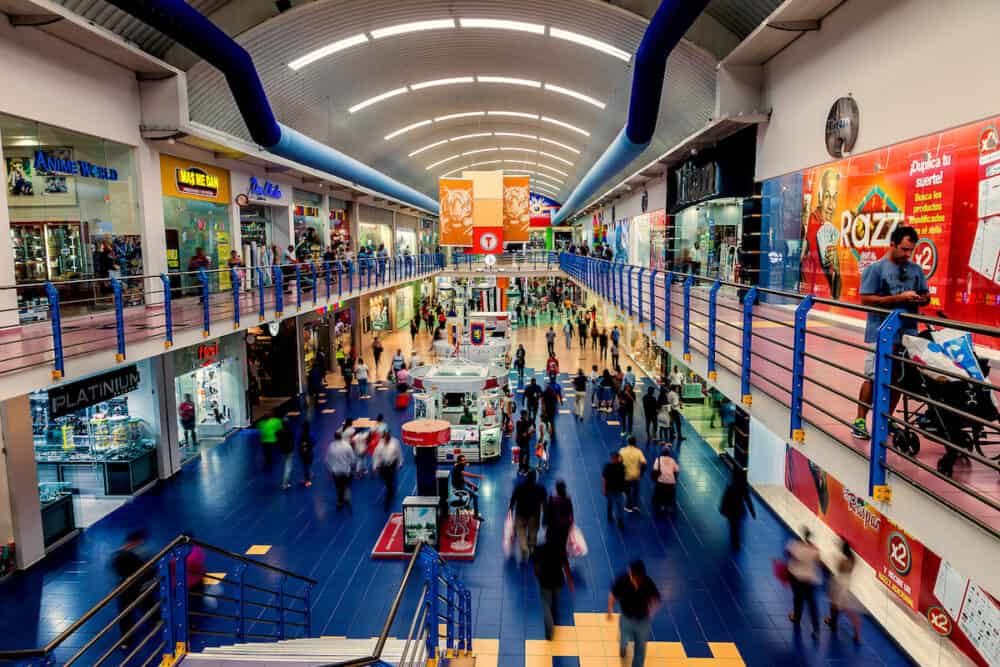
The Community
Panama has a growing popular expat community, with people worldwide seeking that tropical paradise.
Thanks to its excellent infrastructure and first-world amenities, it’s an all-around great choice, drawing people to its beautiful beaches, friendly culture and the many consistently growing communities.
Panama is perfect for expats, especially those with families looking to escape the crazy living of the Western world. Its high level of education, political stability and economic growth provide reassurance and accountability.
Pros:
Local Community:
- Cultural Immersion:
Living among locals allows you to immerse yourself in the local culture, learn the language, and develop a deeper understanding of the country’s traditions and way of life.
- Authentic Experiences:
You’ll be able to engage in authentic local activities, festivals, and events that may not be as accessible in expat-heavy areas.
- Support System:
Building relationships with locals can provide a robust support system and enhance your sense of belonging in the community.
Expat Community:
- Instant Social Network:
Living as an expat in Panama provides an instant social network of people with similar backgrounds and languages, making it easier to adjust to your new surroundings.
- English Language:
In expat-dense areas, you’re more likely to find English speakers, which can be valuable if you need to be fluent in Spanish.
- Common Interests:
Expats often organize social gatherings and events, helping you connect with like-minded individuals and participate in familiar activities from your home country.
Cons:
Local Community:
- Language Barrier:
If you don’t speak Spanish fluently, you may face communication challenges, limiting your ability to connect with locals and fully engage in the community.
- Cultural Differences:
Adapting to different customs and cultural norms can be challenging, and building strong relationships with locals may take time.
Expat Community:
- Limited Cultural Immersion:
If you primarily socialize with other expats, you may miss out on opportunities to fully immerse yourself in the local culture and customs.
- Insular Communities:
Some expat communities can be insular, with residents primarily interacting among themselves, which may limit your exposure to the local community.
- Dependency on English:
Depending on the size of the expat community, you might rely on English for daily interactions, potentially slowing down your language acquisition and integration into the local culture.
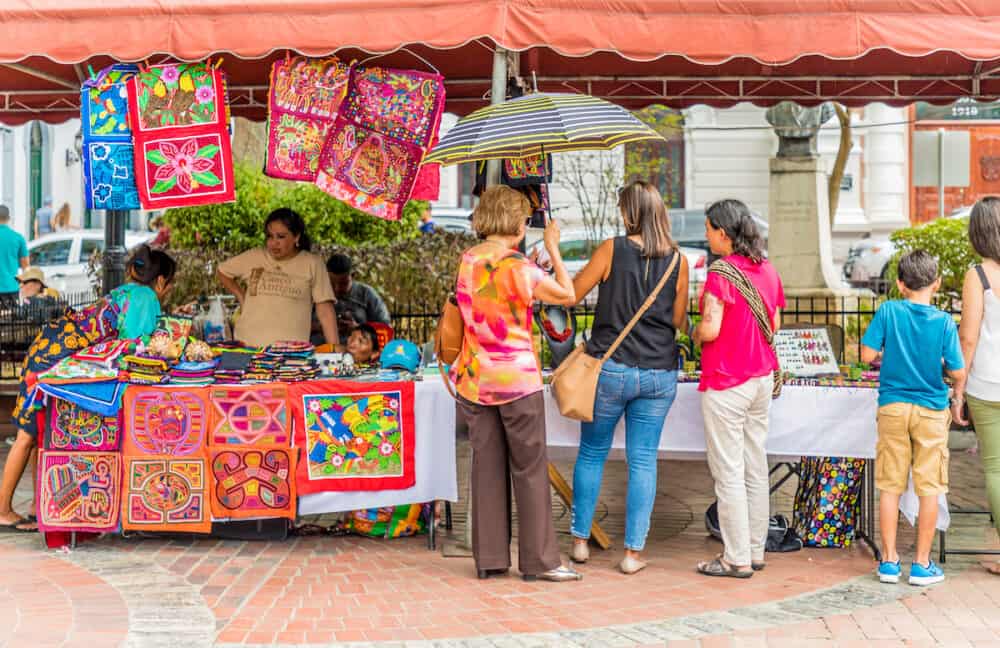
Retirement
“Is Panama a good place to retire?”
Yes and no; retiring in Panama has pros and cons, which can significantly influence your decision to move there. When it comes to relocating, it is always best to visit the country itself first before making any significant decisions.
Finding communities online or going there yourself to interact with other retirees is a great way to finalize your decision and hear different opinions and thoughts on the matter.
Pros:
- Affordability:
Panama offers a relatively low cost of living compared to many Western countries. Housing, healthcare, and day-to-day expenses can be more budget-friendly.
- Retirement Incentives:
Panama has special visa programs, such as the Pensionado Visa, which discounts various services and goods for retirees, including healthcare, entertainment, and transportation.
- Quality Healthcare:
Panama has a well-developed healthcare system with modern facilities and highly trained medical professionals. Medical services are generally affordable, and there are options for private healthcare insurance.
- Natural Beauty:
Panama boasts stunning natural landscapes, including rainforests, beautiful beaches, and mountains, making it an attractive destination for outdoor enthusiasts and nature lovers.
- Cultural Diversity:
Panama’s population is diverse, with a mix of indigenous peoples, Afro-Panamanians, mestizos, and expatriates worldwide. This cultural diversity contributes to a vibrant and dynamic social atmosphere.
- Tax Benefits:
Panama is known for its favourable tax policies, including no income tax on foreign-earned income and no capital gains tax.
Cons:
- Language Barrier:
While English is spoken in urban areas, Spanish is the official language, and only some speak English fluently. Language barriers can be a challenge, especially in rural areas.
- Traffic Congestion:
Major urban areas like Panama City can experience significant traffic congestion, leading to longer commute times and frustration.
- Climate:
Panama’s tropical climate, with high temperatures and humidity, may only suit some. The rainy season can also bring heavy rainfall and occasional flooding.
- Cultural Adjustment:
Adapting to a different culture and way of life can be challenging, and it may take time to feel fully integrated into the local community.
- Bureaucracy:
Dealing with government paperwork and bureaucracy can be time-consuming, especially regarding visas, permits, and other legal matters.
- Limited Healthcare in Rural Areas:
While major cities have quality healthcare facilities, rural regions may have limited access to medical services.
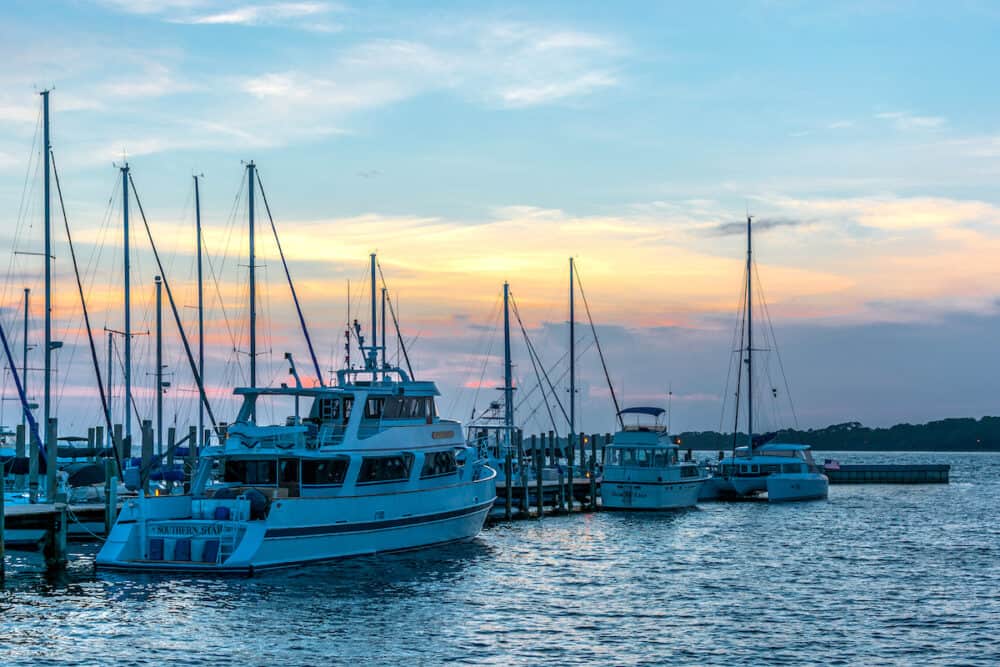
Conclusion
The pros and cons of living in Panama are broad, and it all depends on what you are prepared to give up and change.
“Are there any reasons not to live in Panama?”
After looking at the positive and negative angles of relocating, there are a few, such as language barriers, traffic issues, the weather or even the ‘Manana’ saying, which means tomorrow.
If you are trying to get something done, but the ‘Manana’ effect is in place, I assure you things will only be completed in the next few days.
“Is Panama a good place for Americans to move to?”
Yes! Many Americans are choosing to move to Panama, but Panama is much slower than the United States. You must leave your fast-paced lifestyle at home and take on the laid-back, take-it-easy way of life.
Living as an expat in Panama is a fantastic opportunity many can take advantage of. Compared to its Western neighbours, its excellent infrastructure, low cost of living, well-run government, and way of life ticks many boxes, especially for those looking to slow their lives down.



